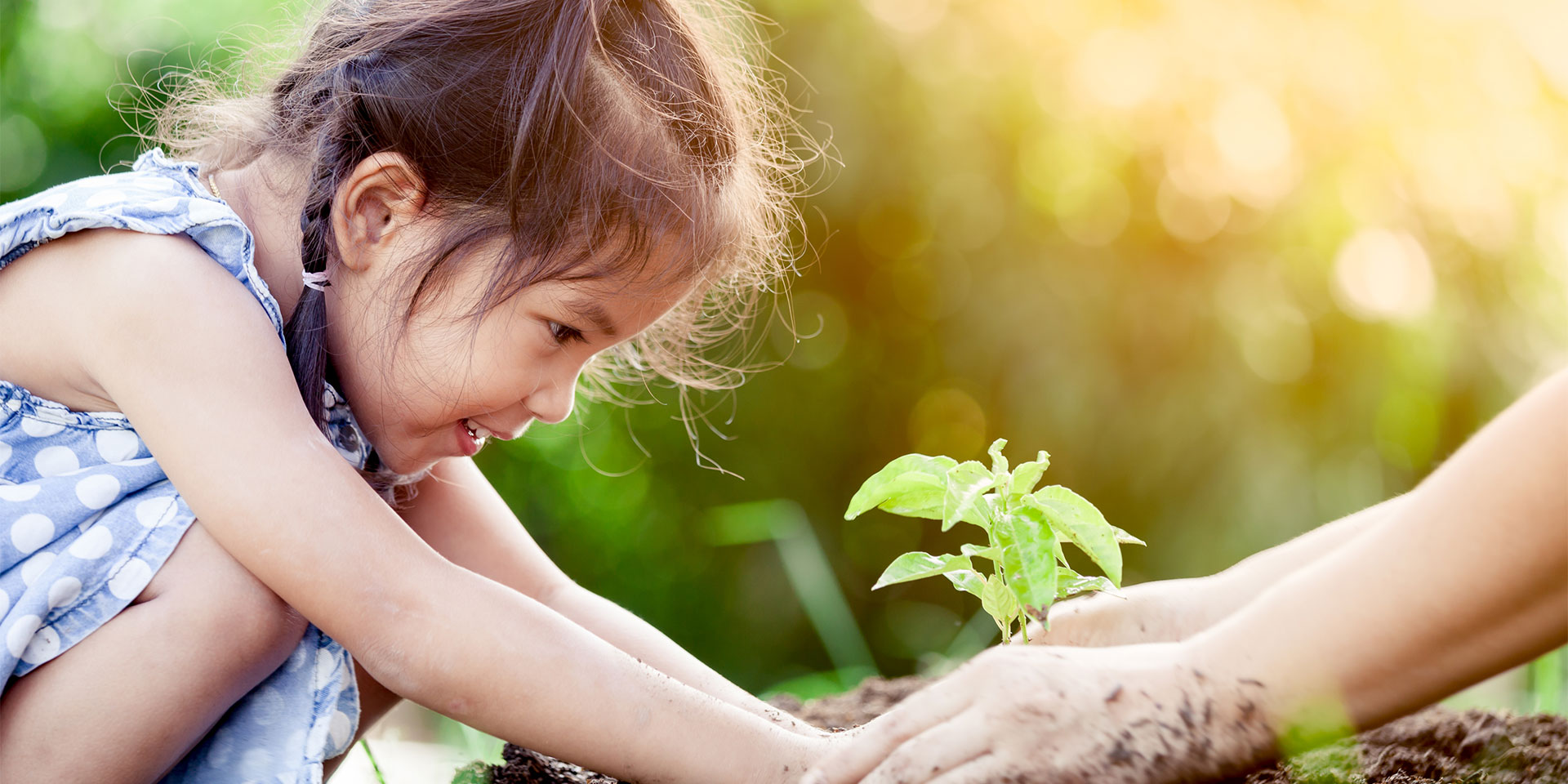In the whole array of virtues that a stepparent must possess in order to succeed in raising a well-rounded child whose world has been shattered by the separation of his or her parents, courage is only mentioned in passing. Yet courage is the foundation of a construction that promises to be challenging from the outset, say those who have plunged into the role and managed to bring a drifting relationship to the shore.
The world of fairy tales and children’s books (and other genres) is full of villains, but stepparents, and especially stepmothers, seem to be by far the most sinister characters, constantly plotting to destroy the present and future of a child who gets in their way. The presence of the step-siblings does not bring any positive change to the situation of the intruder; instead, their preferential treatment becomes the contrast that shows the child how unbearable his experience is compared to normal childhood.
What does it mean to be a stepparent?
And if, in the world of fairy tales, stepmothers plot to get rid of or kill the outsider, in the “real world” of stories, unfair treatment and brutality are the weapons of choice. With all their dreams shattered, the children quietly come to terms with it, just like Jules Renard’s hero, Carrot Top, who is eternally searching for his place in a family where Mrs Lepic’s ice-cold stare is the answer to any good or bad deed. At other times, the children escape, but only when they have a better refuge, such as the grandparents’ home for Lizuca, the orphan who has become the “thorn in the side” and “trouble” of Mrs Mia Vasilian, her father’s lovely wife.
Rarely does the biological parent appear in the narrative, usually absent or preoccupied with other matters, too naive or indifferent to notice the abuse taking place within the walls of their home. Or too cowardly to deal with a tyrannical partner, as in the case of David Copperfield’s mother, who is subjugated by her sinister husband, Mr Murdstone.
In a society where divorce rates remain high, but also where accidents and debilitating illnesses take parents away from their children too soon, the number of stepparents has also risen. Intimidated by the persistence of the stepparent myth in a society of changing family dynamics, many are making real efforts to manage the relationship. The results are not always the same, for a variety of reasons, including the child’s personality, their age, the circumstances in which they came to have a stepparent, or the perseverance of the stepparent in the face of the obstacles that stand between two beings “forced” to bond by mechanisms other than those dictated by a shared DNA.
Because “no one said it was easy to be a mother to a child you didn’t have,” as one biological parent admits, stepparents should consider a number of elements when trying to build a harmonious relationship with their stepchildren.
Reconstructing a broken universe
Responding to the concerns of a reader who doesn’t know how to deal with her stepson’s anger, therapist Susan Stiffelman says that it’s natural for a child with separated parents to be faced with a wrenching dilemma: Which side should he or she be loyal to? Their situation is made all the more awkward because the parent who feels most hurt by the separation will often instil in the child bitter feelings towards the other parent in an attempt to dull the pain caused by the breakdown of the relationship.
There are a few things every stepparent should know about what’s going on inside the mind of a child whose parents are no longer together, whether the separation is due to divorce or death, writes journalist Michell Zunter in a perceptive examination of stepparenting.
Because the decision to separate is never the choice of the children, they struggle to cope with the void left when mum and dad are no longer a couple. Physically, mentally, and emotionally, children go through a series of adjustments as they try to build an identity and (re)gain a sense of self-worth. Even if the children understand on a rational level that their family will no longer be what it was, they will long for the old family dynamic and may behave in ways that betray frustration, resentment, and rebellion. Therefore, they need an “enemy” to blame for all the pain they are feeling.
Stepparents should know that they will wear more hats than most people, says Zunter. One is that of an intruder, an agent of negative change in the child’s life, especially if the child has grown up with both parents for many years. They also need tact, kindness, perseverance, unconditional love, and resilience in the face of rejection. Because many people feel incapable of playing such a role, Zunter argues that only a minority have the courage to be stepparents and to play the role in a way that helps the children to flourish.
The most important thing to work on as a stepparent is to act like an adult. Even if you feel exhausted, confused, worried about the child’s attitude, or that you won’t make it, you need to act maturely, eliminate negative comments, separate responsibility from resentment, and put the children before yourself, says the journalist, who is a stepparent herself.
A good stepparent must constantly learn and practice grace and humility, Zunter concludes, stressing that “it’s not all about you. Yes, you’re tired, yes things may be unfair but having some perspective as to the bigger picture can boost your morale immensely.”

Why stepfathers are easier to love
In researching for Stepmonster, Wednesday Martin, author of several books on parenting and couples, found that people who had stepfathers generally confessed to loving or at least liking their stepfathers and considering them “another parent.” Most resented their stepmothers, which confirms what the literature says, that there is a much closer relationship between stepfathers and stepchildren than between stepmothers and stepchildren, Martin points out, and tries to explain what accounts for these differences.
One explanation is that women are more angry after divorce and less inclined to have a friendly relationship with their ex-husbands, and children take on their mother’s resentment and sympathise with her, disliking their stepmother who they see as just “my father’s wife.”
On the other hand, the stepmother may feel pressured to play a maternal role, either by her desire to establish a relationship with the stepchildren or at the insistence of her partner, which will often lead to her rejection by the child, who feels loyal to the biological mother. Stepfathers, on the other hand, put less pressure on children, allowing the relationship to develop on its own and playing more the role of a friend to the child, especially if the child already has a biological father who looks after him or her.
Mothers are also more likely to have custody of the child, so interactions between stepmothers and children are rather infrequent, over the course of weekends or holidays, which is not enough time to build a relationship.
The life of a stepmother is far from a fairy tale, writes journalist Tim Lott, who admits that Stepmonster has made him sympathetic to the efforts of stepmothers, “which is probably overdue because I am married to a woman who struggled for years to fill that role.” Stepmothers “are not necessarily wicked,” says Lott, although wickedness is the characteristic most often ascribed to them, both because of the legacy myths and fairy tales leave us and because they have to function under pressure.
In fact, all members of a blended family are in a difficult position, from the children, who can feel lost in the face of family reconfiguration, to the father, who struggles to divide his loyalties between his partner and his children.
Stepmothers don’t often talk about how they are coping and how they really feel. They believe that it is a taboo subject and that admitting their failures would damage their image, as women tend to define themselves by the quality of their relationships. And if they eventually begin to sour, they embody the very stereotype they were trying to avoid, Lott concludes.
Even when relationships become very good, the child’s relationship with a stepparent may differ from that with the biological parent, but this should be interpreted as a normality rather than a failure, says noted American paediatrician Benjamin McLane Spock.
“My hunch is that almost every stepchild, even though he develops an excellent relationship with the stepparents, will want to continue to think of this as different from his relationships with his own mother and father. He may not want to call a stepfather, ‘father’. This should not be felt as a sign of reproach by the stepparent or as a sign of his failure even to a slight degree. . . . The wise stepparent should show that he understands this distinction and respects it,” Spock concludes.
How do you discipline a stepchild?
Disciplining a child can be by far the most difficult task a parent faces. When it comes to a stepchild, things get even more complicated, but the situation is not hopeless, provided both partners agree on the rules to be imposed and the ways in which unacceptable behaviours will be discouraged.
The rules need to be presented to the child by both parents so that the child is convinced that the stepparent has the full support of the biological parent, says psychologist Marie Hartwell-Walker. Conflicts between parents and children should always be handled with respect, as they are opportunities for the child to learn how to deal with conflict in adulthood. In addition, the relationship should not revolve solely around discipline, says Hartwell-Walker, because life is not just about discipline, but about balancing the responsibilities and privileges that can be derived from family life.
The stepparent needs to develop a mindset that favours bonding over correction, says family psychologist Patricia Papernow. This means that the biological parent should do most of the disciplining, while the stepparent devotes time to building the new relationship, she says. Once a bridge of affection has been built between the stepparent and the child, the risk of discipline being met with hostility and resentment diminishes.
It’s desirable for the stepparent to put more emphasis on encouraging desirable behaviours rather than punishing undesirable ones, says therapist Carrie Krawiec. In the case of the stepparent, it is necessary to build up their loving-feeling bank account into which the biological parent has been making deposits since the child’s birth, so that withdrawals due to discipline don’t seriously upset the balance of inflows and outflows of emotional capital.
In summary, in the relationship with their child, parents should above all be ready to love in order to create a basis from which the child can more easily accept decisions, advice, and corrections as part of his or her shaping process.

Stepparent: Where there isn’t any love…
It’s not easy to love a child who’s not your own, and maybe you shouldn’t even think about loving him or her in this way, some stepparents say. Others, however, say that unconditional love for a child, even if he or she isn’t your own, is part of the job description of being a parent, and will happen sooner or later anyway.
In the former category is Alex Thomas, a radio presenter who has set up a website, www.childlessstepmums.co.uk, where she talks to mothers who say they love their partners but feel little affection for their partners’ children. Feeling free to express their feelings where they won’t be judged too harshly, some stepmothers confess to feeling relieved at the weekend when their stepchildren can’t come, or wishing for more days off when their time with their partner isn’t interrupted by the presence of their children.
Alex, for her part, admits that in a way she wishes those children didn’t exist and that she had met Matt long before. But she also admits that they are smart, sweet children whom she tries to get close to, even though what she feels for them can in no way be labelled “love.” Weekends which include her stepchildren have convinced her that parenting is exhausting work—only for a stepparent, the difference is that you do all these things because they have to be done, not out of love. Alex says that things have become more nuanced over time and will continue to evolve, but she advocates expressing feelings of ambivalence, even if those around her vilify her for being honest. Summing up her frustration with a situation common to blended families, the woman explains: “The fundamental conflict is, he’s at his happiest when he’s with me and the kids. I’m at my happiest when it’s just the two of us.”
Alex’s attitude could be described as selfish, and in fact it was, especially as her current partner’s marriage broke up after they fell in love with each other during a period when they were working in radio together. However, she won’t be judged by the more than 1,200 people who have signed up to the site to openly share their thoughts on being a stepparent.
Writer and journalist Kamin Mohammadi believes she has found the middle ground and the solution that helps her survive: she loves her stepchildren, but has trained herself not to care much about what they do. Trying to explain this oxymoron, she says that while she helps them with their homework, she doesn’t care much about the end result of the children’s efforts (or lack thereof) at school. She teaches them good manners, but doesn’t care about the bad habits they pick up anyway. In short, Mohammadi has set her relationship with the children on a semi-detached path, where she is part of their lives, but not so much that she suffers from their failures and disobedience.
Loving wholeheartedly
In contrast to the hostile or distant attitudes of other stepmothers, Michell Zunter believes she has come to see things from the right perspective and ultimately to love her stepchildren unconditionally. Her journey, although fraught with difficulties, is a ray of hope for anyone who thinks they will never reach a truce in this relationship, let alone love.
Zunter says that unconditional love is the duty and privilege of the stepparent, who knowingly chose their partner, along with their past. It was a choice that the child could not veto, but only accept and try to accommodate.
Early on, she often heard that you can’t love your stepchild the same way you love your biological child, and she even agreed with that judgement. It wasn’t easy in the beginning, and the journalist says she faced bitterness and resentment, especially when she felt her efforts weren’t appreciated. But she held her head high and kept doing what she knew was right, eventually coming to see things from a different perspective. Labels don’t matter, Zunter discovered, you can call yourself a stepparent or a “real” parent, but “none of those labels change the core relationship built with a child who needs guidance and love.”
In time, feelings will follow actions, attitudes, and intentions, she says, and you’ll find that from stepchildren, your partner’s children will become permanent residents in your heart. You won’t share the same DNA, but you can share the other ingredients of biological parenthood: life and a healthy, fulfilling relationship. And that’s because this is a journey that is about “a life-changing relationship with a child who needs you, not about where they came from or who they belong to. You are there to guide, teach, and support. You don’t have to be their mom or dad. You need to just be there.“
The fruits of a parent’s efforts such as Zunter’s are almost always visible. However, it can often take years for things to settle into a normal, warm family routine, with its ups and downs. “My stepmother’s love saved me,” says Shannon Bradley-Colleary. Clare Conville, for her part, recounts in an article the rather rocky early days of living with her stepmother after her biological mother’s death. She praises the incredible generosity of her new mother, who devoted herself to raising her even in the best years of her life, when she might have wanted more time alone with her husband and to pursue her own dreams.
A universe away from these happy endings, Chrissie Thomas’s experience as she describes it captures all the ugliness an adult can wrap around a child they don’t want. Motherless from the age of three, Chrissie was brought up by a stepmother who, by her own admission, had reserves of hatred for every day, “though it wasn’t personal. She’d have hated any child who was there.” Years later, Chrissie believes she has overcome the nightmare of a childhood in which emotional and physical abuse were intertwined.
But sometimes it doesn’t even take a slap to ruin a person’s life. During an evening of revelations, someone summed up the stepchild experience and its aftermath in a sentence that hit me with the force of a typhoon: “I may never be a whole person again.”
In Zunter’s view, stepparents hold in their hands the fate of a child who feels lost after the death of a parent or the break-up of the family, and who has to find himself or herself and navigate the maze of a world that seems hostile to him or her.
Perhaps this is why the first virtue of the person who chooses to be a stepparent needs to be courage. The courage to do everything in your power for someone who is not of your own blood. The courage to show them that the inner world can be rebuilt even after the last brick has fallen. The courage to say “yes” to the person you love only if you know that you will be kind and strong enough to support, heal, and nurture the being who is carrying a burden too heavy for his or her frail shoulders.
Or, perhaps what is needed is to simply have the courage to take a different, much easier path, one where you do not cross paths with a lost child you might turn into an adult who will waste his years picking up the missing pieces of what could have been a whole.
Carmen Lăiu is an editor at Signs of the Times Romania and ST Network.



















